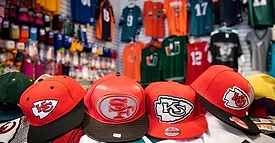Home » counterfeit goods
Articles Tagged with ''counterfeit goods ''
Placing a Signature on Products and Packaging
Use of Plant DNA Marks New Era in Tracking Fraudulence and Theft
Counterfeiting Protection at Manufacturing Stage
November 19, 2013
Sign-up to receive top management & result-driven techniques in the industry.
Join over 20,000+ industry leaders who receive our premium content.
SIGN UP TODAY!Copyright ©2026. All Rights Reserved BNP Media.
Design, CMS, Hosting & Web Development :: ePublishing

